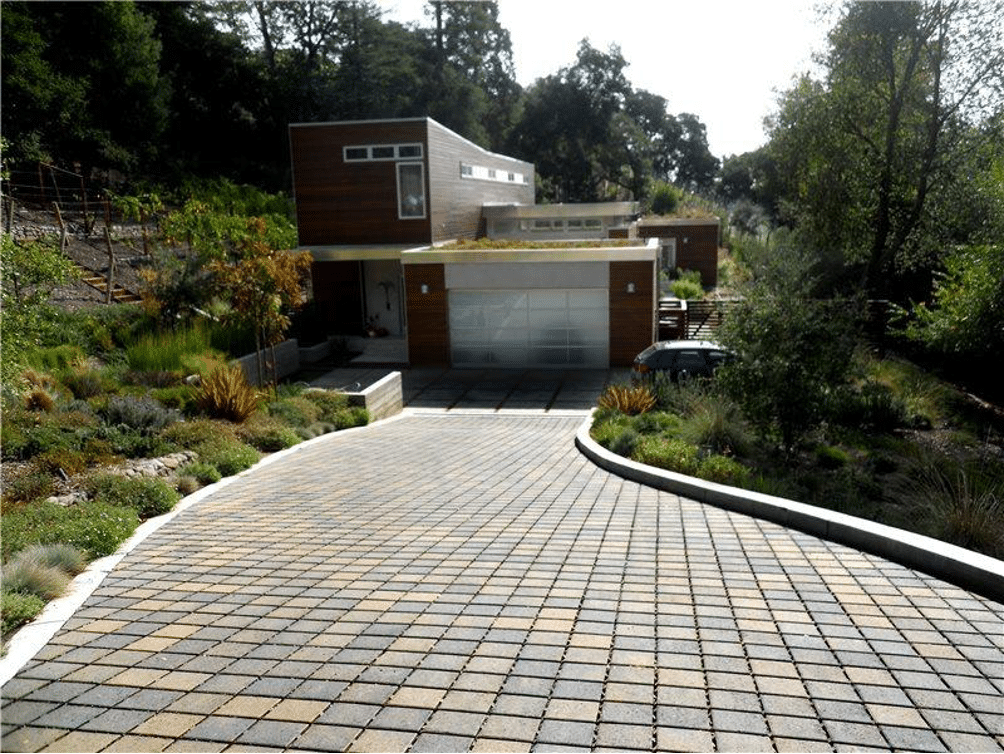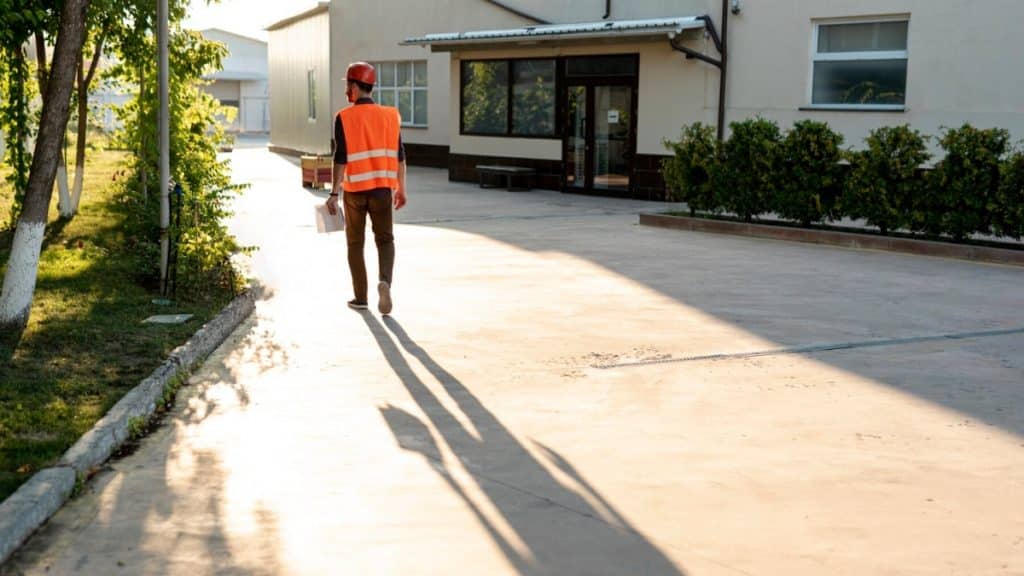Sloped driveways are a bit of a challenge for homeowners, as they must ensure safety and aesthetics. Choosing the right surface for your sloped driveway is key to ensuring the safety, durability, and aesthetics of your yard.
From traditional options such as asphalt and concrete to the use of a variety of innovative materials such as rubber coating, there are completely different materials on the market to consider when designing a sloped driveway. For example, a rubber-coated driveway provides a proper aesthetic appearance, it is durable and resistant to different temperature and weather conditions. In this article, we will thoroughly research the optimal surfaces for sloped driveways, examine in detail all their qualities, and provide practical advice for creating a safe and functional entrance to your home.
What makes steep or sloping driveways different?
It is sloping driveways that have certain difficulties compared to flat roads. The slope creates minor traction, drainage, and erosion control problems. Choosing the right surface for sloping driveways requires careful consideration of these factors to prevent accidents and ensure the longevity of your pavement https://safestep.pro/rubber-pathways-trails/.
What qualities should the best steep driveway material have?
An ideal surface for a sloping driveway should possess several key qualities:
- The coating must have excellent adhesion. This key quality is essential to prevent vehicles from skidding, especially during wet or icy conditions;
- Durability. The covering material for a sloping driveway must withstand heavy loads and frequent use without destruction and loss of an attractive visual appearance;
- Drainage features are extremely important. An effective drainage system is critical to preventing water accumulation, which can lead to erosion and significant surface damage over time;
- Easy maintenance. Ideally, a sloped driveway surface should be easy to maintain, requiring minimal maintenance time;
- Attractive aesthetic appearance. The surface of the sloping driveway should complement the overall design of the room, increasing its visual appeal.
Choosing the best surface for a sloping driveway
Choosing the optimal surface for your sloped driveway is critical to ensuring proper safety and functionality. Key factors such as durability and aesthetic appeal must be considered. Concrete provides durability and a smooth surface, but can be prone to cracking over time. Asphalt provides maximum traction and is a cost-effective solution, but requires periodic maintenance to prevent surface cracks. Gravel is affordable and allows for effective water drainage, but may require frequent replenishment. When considering the best surface for a sloping driveway, traction is paramount to ensure safe vehicle maneuverability.

Asphalt
When building quality sloped driveways, professionals often choose asphalt as the surfacing material because of its key advantages over other materials in terms of appearance, durability, safety, and surface slip resistance. Asphalt is effectively laid on slopes, the surface is strong, and resistant to wear and various temperature and weather conditions.
Due to numerous, indisputable advantages, asphalt is an excellent solution for sloping driveways:
- Affordable price. Asphalt is an economical solution for sloping driveways. This material is much cheaper and requires less maintenance than other materials;
- Durability. Asphalt is strong and resistant to heavy loads and extreme weather conditions;
- Security. The rough texture of asphalt provides excellent traction and safety for vehicles and pedestrians;
- Easy installation. The process of installing sloping asphalt driveways is quick and easy, which reduces the inconvenience for homeowners;
- Environmental friendliness. A material like asphalt is an environmentally friendly choice because it can be recycled and reused.
Bricks
Such a material for the construction of sloping driveways as brick is durable, gives a classic aesthetic appearance, and allows for easy repairs, at the same time, you get high costs for the initial stage of construction, this material can shift or become uneven on steep slopes.
Concrete
Material for building sloped driveways, such as concrete, prevents surface erosion on the side of the road as water flows straight. This material requires minimal maintenance and effectively resists ice and snow. Provides a smooth driving surface, but concrete is prone to cracking when operating in cold climates.
Rubber surface
The rubber surface has excellent traction, this surface for sloping driveways perfectly absorbs shocks, and it is an environmentally friendly option. Disadvantages include high initial financial costs for construction, limited color options, and may require professional installation. A rubber-coated surface is often hailed as the best surface for a steep driveway due to its exceptional traction and durability.
Gravel
The gravel for sloped driveways is affordable, provides natural drainage, and is easy to install. At the same time, gravel is quite prone to landslides and erosion on steep slopes, and requires frequent maintenance.
Chip seal
This sloped driveway material provides good traction, and seals the surface to prevent water ingress, but can break down over time and requires periodic resealing.
Useful advice for your great driveway
Make sure the sloped driveway is properly graded to promote drainage and prevent water from pooling. Schedule regular inspections and appropriate maintenance to quickly address any issues and extend the life of your surface. It is important to consider the climate. Exploring various sloping driveway ideas can lead to innovative solutions that combine functionality with aesthetic appeal.
Choose a sloped driveway material that can withstand the climate in your area, especially if you experience extremes in temperature or heavy rainfall. For sloped driveway surfaces such as rubber or concrete, consider hiring experienced professionals to ensure proper surface installation. When choosing a material for the construction of a sloping driveway, it is also important to consider your design vision, you need to create a unified and visually attractive landscape design.
In summary, choosing the best surface for a sloped driveway requires careful consideration of various key aspects and critical factors, including traction, durability, and maintenance requirements. While familiar materials such as asphalt and concrete are popular, innovative solutions such as rubber pavements offer unique advantages, especially on steep slopes. After weighing all the pros and cons of each option and following practical advice, you will be able to create a safe, functional, and visually attractive sloping driveway for your home.
